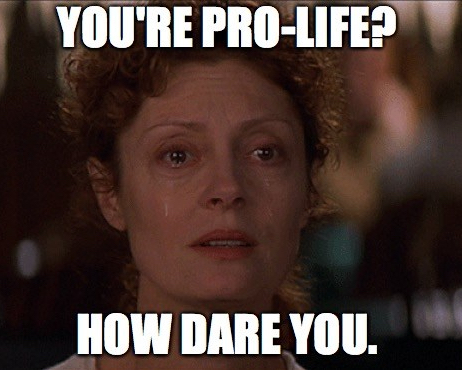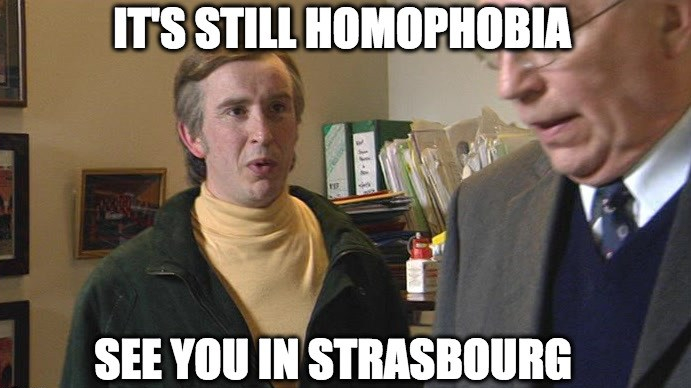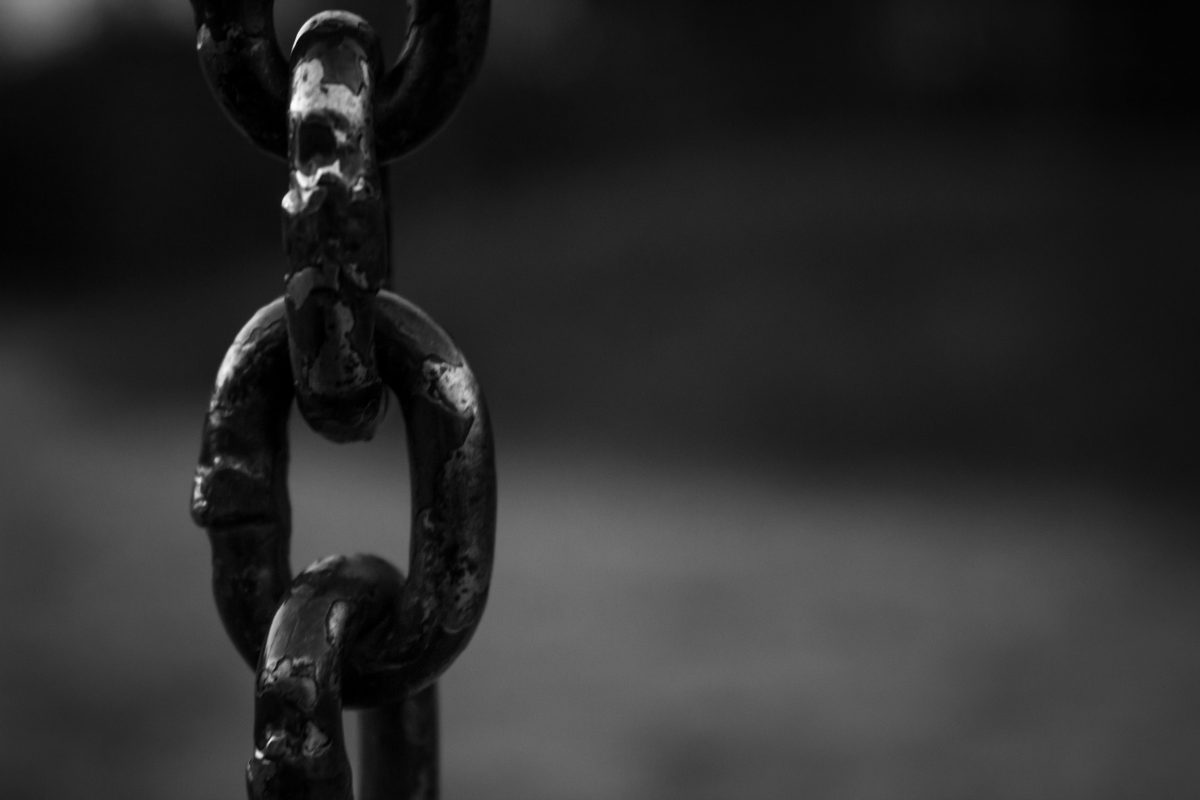An increasingly popular canard of the abortion-choice narrative is that you can be in favour of abortion and be a consistent Christian. Now, to anyone with an ounce of wit this is obviously just a recruitment tactic, aimed at increasing abortion support beyond angry-faced feminists and unscrupulous men. However, if you’ve ever seen an abortion-choice march or engaged with abortion-choicers online you will know that these people, by and large, despise Christianity.
But is it true? Can you be pro-abortion and pro-Christ. While I agree that it is possible to hold an incorrect view on a social issue and still be a faithful Christian (your views don’t change overnight upon becoming a Christian), the practice of abortion seems obviously – and necessarily – antitethical to Christ’s teachings. I mean, could Mary have aborted Jesus if the option was open to her and she was so inclined? Was Jesus actually Jesus while in utero, or was Mary’s pregnancy some sort divine aggregate of cells?
Which brings us to this video of three self-identified Christians extolling the virtues of “choice”. By “choice,” of course, they don’t mean picking a flavour of ice cream; they mean the choice to intentionally take a human life. They mean “abortion”.
Now, I don’t know if those in this video are genuine Christians or not. Don’t get me wrong, they exhibit all the hallmarks of spiritual-but-functionally-atheist nominal churchgoers. They never actually mention Christ in defence of their views, and instead give primacy to their feelings and opinions. Not a good start. What I do know, however, is that once you get past the emotional appeals and question-begging, there isn’t a single compelling argument for abortion to be found anywhere in this video. Not one. Let’s take a closer look.
“I’m actually getting emotional” (00:00)
Nobody does emotion better than the abortion lobby. If they aren’t appealing to difficult and rare cases (“What about a diabetic one-legged mother-of-ten with crippling sciatica and hypersexual bipolar disorder, who works down a mineshaft on a zero-hour contract?!?! How could you deny her an abortion?!?! HOW???”) – they get upset. And true to form, this video plays that card straightaway; the music is touching, the lighting is soft, eyes are teary. Only a vile monster would disagree with them.
“I think God put us on this earth. He gave us choices, He gave us freedom” (00:20)
White belt abortion-choicers, for the most part, believe that an unborn child is not fully human. But instead of trying to argue their case with science and reason, they merely assume it to be true. This is a logical fallacy called “question-begging,” and it can be found running free and wild throughout this video.
Case in point: the statement above assumes that because choice and freedom are, in principle, good things, it follows that the freedom to choose an abortion is also a good thing. But nowhere does the interviewee even attempt to justify this claim. It’s all assumed within her rhetoric. Is racism a good choice? What about the freedom to rape or commit tax fraud? Oh, I see. She only means the choices she agrees with. Ah.
Well, excuse me while I choose which puppy to test my new taser on.
“Love your neighbour as you love yourself. I couldn’t look my neighbour in the eye if I denied them healthcare.” (00:46)
But here, at least his neighbour still has eyes (01:17).
Who said anything about denying people healthcare? No-one. This is a strawman statement – an intentional misrepresentation of the pro-life view that is easier to defeat than an actual pro-life argument, such as:
- It is wrong to take an innocent human life (sound philosophy)
- Abortion takes an innocent human life (accurate science)
- Therefore, abortion is wrong (logical conclusion)
Or maybe he’s confused and doesn’t know that the slow and methodical dismemberment of a live human being isn’t healthcare. If only he had Googled some abortion-victim photos before being interviewed, then he would see how recipients of abortion don’t look particularly healthy or cared for.
From a Christian perspective, though, the pertinent question to ask here is: “who qualifies as my neighbour?” Is it the Christian view which tells us that every human being is created equal in the image of God and therefore worthy of the title ‘neighbour’? Or is it the time-period-dependant secular humanist view which holds that human beings are valuable only in virtue of their location, their size and their level of physical and mental development?
Careful which horse you back there, fella. History has not been kind to those secular rulers and governments that took seriously the idea that human beings are nothing but the product of blind natural forces.
“My decision to not have an abortion due to my faith, shouldn’t dictate other people’s choices.” (01:10)
But wait! Why not have an abortion? Is abortion wrong? Is it because you think abortion kills an innocent human being? Is that not a good reason to dictate other people’s choices? Isn’t that how civilisation works?
Society dictates what people can and can’t choose all the time. It’s not a matter of if choices will be dictated, but which choices will be dictated. If pro-lifers impose their views on women and doctors, then abortion-choicers impose their views on the unborn. And only one of those views ends with a dismembered or burned human corpse in a petri dish.
“Being told by people who have encouraged me to become Christian that my opinion is wrong, or that the bible says something that contradicts my opinion is quite hard for me to hear.” (01:15)
Yet more question-begging. This is just a personal perspective that tells us absolutely nothing about why other Christians are wrong and she is right. No attempt has been made to defend her views, or to justify the act of abortion; she just assumes she’s right.
It’s almost as if all the interviewees suffer from some sort of narcissistic disorder that restricts their ability to even fathom how other people could disagree with them, to the point where they don’t even feel the need to defend their position.
For the record, the bible does contradict her. Scripture is clear that all humans have intrinsic value because they are made in the image of God (Genesis 1:26-28; James 3:9). In other words, humans are valuable in virtue of the thing they are, not because of what they can do – and especially not because of someone’s opinion.
Therefore, since human beings are made in God’s image, unjustly killing them is wrong (Exodus 23:7; Proverbs 6:16-19; Matthew 5:21). What makes the pro-lifer’s job easy here is that science confirms beyond all doubt that the unborn are whole and distinct human beings, so it follows that any scripture that forbids the unjust killing of human beings must also apply to unborn human beings. That she finds this hard to hear doesn’t change it.
“I just don’t want to make those choices for other women. I’m not pro-abortion, I’m pro-choice” (01:38)
This isn’t about pro-choice versus anti-choice. Pro-lifers are staunchly pro-choice when it comes to many things: the right to vote, to choose your own partner, to choose your own religion, to choose your education, to choose a career, to choose to shave your head and paint yourself blue. They just believe that some choices are wrong, like killing tiny human beings. Therefore, the important distinction here is that you are pro-abortion.
Pro-abortion feminist and activist, Camille Paglia, calls the term “pro-choice” a “cowardly euphemism”. She believes that those who are pro-abortion must face what they are opposing – the right to life for every member of the human family. If you’re going to be in favour of something so obviously – and necessarily – destructive and discriminatory as abortion, at least have the courage of your convictions to tell it like it is.
Why every Christian should be pro-life
If the secular humanist ethic that dominates today’s culture is true, then human beings only have value in virtue of the things they can do or because of the landmarks they have reached, like the ability to breathe independently, express self-awareness, or pass seven inches down a birth canal. It follows, then, that on this view human equality isn’t actually a thing. It just depends on how those in power dish it out.
Christianity, however, tells a better story. It’s much more persuasive and reasonable to ground human rights in the idea that although humans may vary greatly in their mental and physical abilities and characteristics, they are all still perfectly equal because they share a common humanity, made in the image of a personal and just triune God.














